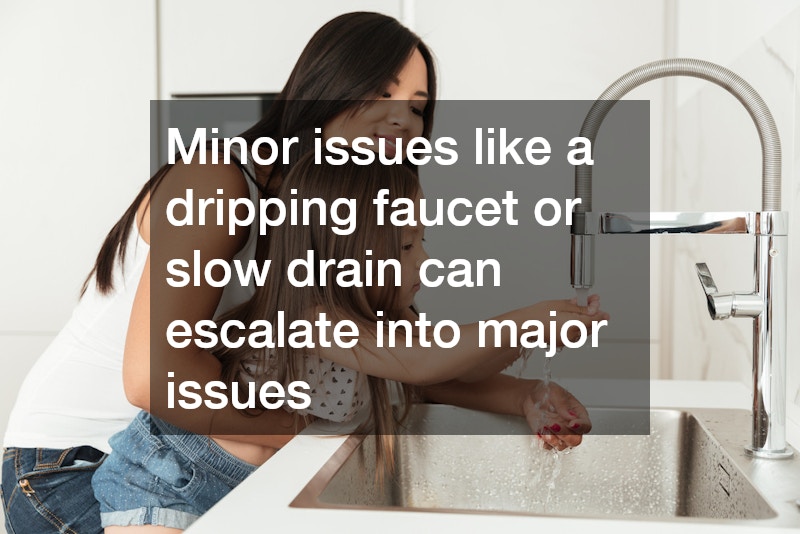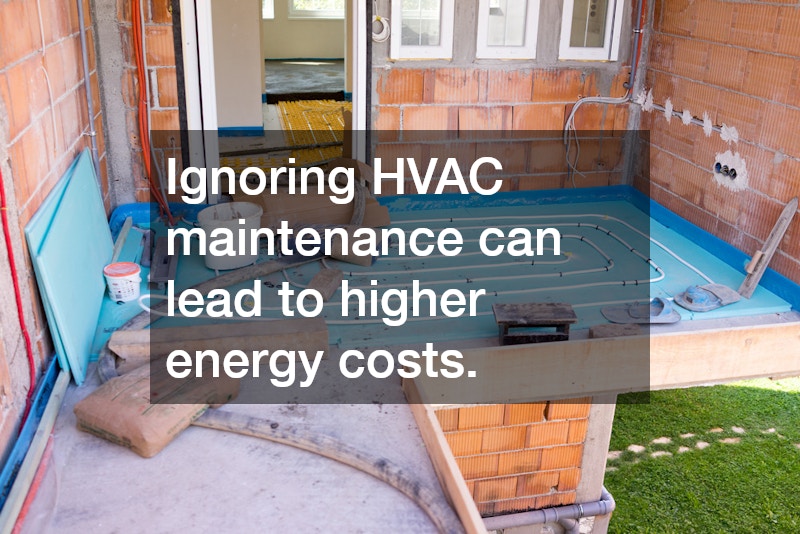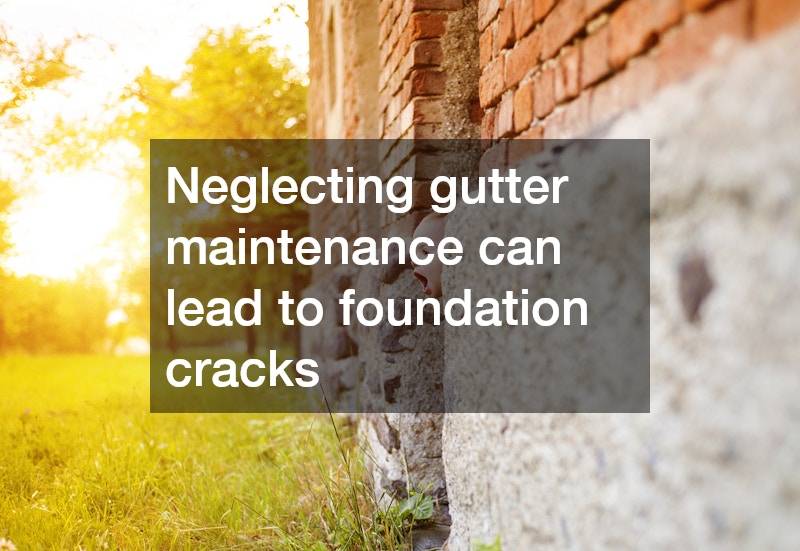Holding Off on Home Repairs? Experts Weigh In on Why Thats a Bad Idea
I. Introduction
It’s easy to let home repairs fall to the wayside, especially with busy schedules and tight budgets. However, delaying these essential tasks often leads to bigger problems and more significant expenses down the line. Home maintenance is about more than just aesthetics—it’s about protecting your investment, ensuring your family’s safety, and avoiding costly surprises. Experts agree that even minor issues can snowball into major concerns if left unaddressed. Taking timely action can save you money, stress, and headaches.
II. The True Cost of Delayed Home Repairs
Delaying home repairs might seem like a cost-saving measure, but it’s often a false economy. Home repairs left unaddressed can escalate, leading to significant financial strain and potentially dangerous living conditions. A minor leak or a cracked wall may appear harmless initially, but over time, these small issues can evolve into costly, complex problems. For instance, a simple plumbing issue can lead to extensive water damage, mold growth, or even structural failure. Similarly, ignoring worn roofing materials can result in water infiltration and extensive interior damage.
When small repairs are neglected, they often lead to compounded damage, which becomes more expensive and time-consuming to fix. Furthermore, these issues can decrease the overall value of your property, making it less attractive to potential buyers or appraisers. Taking a proactive approach to home maintenance can save you thousands of dollars and protect your investment for years to come.
Why Timely Repairs Are Essential
- Prevent Escalation:
- Small problems like a dripping faucet or slow drain can lead to major plumbing repair needs, such as burst pipes or water damage.
- Minor roof leaks, when ignored, can spread, causing structural rot and mold issues.
- Delayed repairs on appliances like water heaters can lead to complete breakdowns and water damage.
- Reduce Costs:
- Addressing issues early is typically less labor-intensive and requires fewer materials than fixing a fully developed problem.
- For instance, repairing a cracked windowpane is far cheaper than replacing the entire frame or dealing with mold caused by prolonged exposure to moisture.
- Protect Home Value:
- Neglected repairs signal poor maintenance, which can significantly lower your home’s resale value.
- Visible issues such as cracked walls, damaged gutters, or an outdated HVAC system can make your property less appealing during a sale.
- Avoid Health Hazards:
- Issues like mold from plumbing leaks or drafts from damaged windows can pose health risks to your family.
- Delaying repairs on HVAC systems can lead to poor air quality, aggravating allergies or respiratory conditions.

Tips to Tackle Repairs Early
Taking a proactive approach to home maintenance ensures that you avoid larger expenses and potential safety concerns. Here’s how to stay on top of repairs:
- Schedule Routine Inspections:
- Hire professionals to inspect major systems like plumbing, roofing, and HVAC annually.
- Look for signs of wear and tear yourself, such as water stains, cracks, or drafts.
- Prioritize Repairs:
- Focus on repairs that can cause the most significant damage if left unaddressed.
- For example, address plumbing repair needs and roof leaks before cosmetic issues like peeling paint.
- Use a checklist to track repairs and monitor their urgency.
- Focus on repairs that can cause the most significant damage if left unaddressed.
- Build a Repair Fund:
- Set aside a portion of your income each month specifically for home repairs.
- Aim for a fund that covers at least 1-2% of your home’s value annually to prepare for unexpected repairs.
- Address Small Repairs Immediately:
- Fix small problems as soon as you notice them, such as a loose tile or dripping faucet.
- Keep basic tools and materials at home for minor repairs, such as patching a wall or sealing a gap in a window frame.
- Seek Professional Help When Needed:
- Don’t hesitate to contact experts for complex repairs like HVAC replacement or roofing restoration services.
- Hiring a specialist ensures the problem is resolved correctly and prevents further complications.
Windows are an integral part of any home, providing natural light, ventilation, and aesthetic appeal. However, their function goes far beyond looks. Windows play a critical role in maintaining your home’s energy efficiency, security, and overall structural health. Damaged or outdated windows can have a cascade of negative effects, from driving up heating and cooling costs to compromising the integrity of your walls if moisture finds its way inside. Drafts, leaks, or condensation between panes are not just nuisances—they’re warning signs that your windows may need immediate attention.
Timely replacement window installation not only enhances your home’s curb appeal but also improves insulation, reduces energy bills, and increases property value. By addressing window-related issues early, you can prevent costly repairs, ensure a more comfortable indoor environment, and enjoy peace of mind knowing your home is secure and efficient.
Signs It’s Time to Replace Windows
Knowing when to replace your windows is essential to maintaining the efficiency and safety of your home. Here are some telltale signs:
- Cracks or Breaks in the Glass:
- Even small cracks can weaken the structural integrity of the window and allow drafts or moisture to enter.
- Cracked glass reduces the window’s ability to insulate your home effectively.
- Difficulty Opening or Closing Windows:
- Stuck or warped windows indicate aging or poor installation, which can compromise energy efficiency and safety.
- Windows that don’t seal properly can allow pests, drafts, and moisture to enter your home.
- Noticeable Drafts or Condensation Between Panes:
- Condensation indicates a failure in the window’s seal, reducing its insulating properties.
- Drafts make your HVAC system work harder, increasing your energy bills.
Tips for Effective Window Maintenance and Replacement
Proper care and timely replacement of windows can save you money and extend their lifespan. Follow these tips to ensure your windows stay functional and efficient:
- Inspect Regularly:
- Check your windows for visible signs of wear and tear, such as peeling paint, warped frames, or broken seals.
- Perform inspections seasonally to catch issues like condensation, drafts, or structural damage early.
- Seal Gaps Temporarily:
- Use weather stripping or caulk to seal gaps and cracks until you can arrange for professional replacement.
- Temporary fixes help maintain energy efficiency and prevent further damage.
- Upgrade to Energy-Efficient Windows:
- Modern windows with double or triple panes and low-emissivity (Low-E) coatings improve insulation and reduce utility costs.
- Look for windows with ENERGY STAR ratings to maximize energy savings.
- Choose the Right Window Replacement Company:
- Research and select a reputable window replacement company with positive reviews and proven expertise.
- Opt for providers that offer warranties and energy-efficient options to ensure long-term value.
- Maintain Your Windows:
- Clean windows and tracks regularly to prevent dirt and debris buildup that can cause wear.
- Apply lubricant to window tracks and hinges to ensure smooth operation.
Why Replacement Matters
Timely replacement window installation is not just about fixing visible issues; it’s a strategic investment in your home’s future. Here’s why replacement is a smart move:
- Energy Efficiency:
- New windows significantly improve insulation, reducing the workload on your HVAC system and lowering your energy bills.
- Properly sealed windows eliminate drafts, maintaining consistent indoor temperatures.
- Increased Home Value:
- Modern, high-quality windows enhance curb appeal and are a major selling point for potential buyers.
- Replacing outdated windows demonstrates that your home is well-maintained.
- Improved Comfort and Security:
- New windows reduce noise from outside, creating a quieter indoor environment.
- Secure locks and durable glass options improve your home’s safety.
By staying vigilant about window maintenance and working with a professional window replacement company, you can ensure your home remains energy-efficient, secure, and visually appealing for years to come.
IV. Heating and Cooling Systems: Your Home’s Lifeline
our home’s HVAC (heating, ventilation, and air conditioning) system is one of its most critical components. It ensures a comfortable indoor climate year-round and plays a significant role in maintaining healthy air quality. A properly functioning HVAC system keeps your home warm in winter, cool in summer, and free of airborne contaminants. However, delaying necessary maintenance or putting off HVAC replacement can have serious consequences, including inefficiencies, skyrocketing utility bills, and even health risks due to poor air quality.
By consulting local HVAC companies for routine inspections and professional care, you can extend the life of your system, reduce repair costs, and enjoy consistent comfort throughout the year. Proper HVAC maintenance and timely replacements are essential for avoiding costly breakdowns and maintaining a safe, efficient home environment.
Risks of Ignoring HVAC Maintenance
Neglecting your HVAC system doesn’t just lead to inconvenience; it can cause a range of issues that affect your home, wallet, and health. Here are some of the risks:
- Reduced Performance and Higher Energy Costs:
- A poorly maintained HVAC system struggles to maintain desired temperatures, leading to inefficient energy use.
- Dirty filters, clogged ducts, and failing components force the system to work harder, increasing utility bills.
- Increased Risk of Breakdowns During Extreme Weather:
- The demand on HVAC systems is highest during peak seasons like summer and winter.
- Delayed maintenance increases the likelihood of unexpected breakdowns when you need the system most.
- Poor Indoor Air Quality:
- Dust, pollen, and other contaminants accumulate in neglected systems, affecting your home’s air quality.
- Blocked airways or dirty filters can exacerbate allergies, asthma, and other respiratory issues.
- Shortened Equipment Lifespan:
- Regular maintenance helps prevent wear and tear on critical components.
- Neglect can lead to frequent repairs or the need for premature HVAC replacement.
Tips for HVAC Care
Proper maintenance and proactive care can help you avoid costly repairs and ensure your HVAC system operates efficiently for years. Follow these expert tips to keep your system in top shape:
- Replace Air Filters Regularly:
- Change filters every 1-3 months, depending on usage and the presence of pets or allergies in the home.
- Clean filters ensure proper airflow, reducing strain on the system and improving indoor air quality.
- Schedule Annual Tune-Ups:
- Contact local HVAC companies to perform seasonal inspections and tune-ups.
- These check-ups typically include cleaning coils, checking refrigerant levels, and inspecting all components for wear.
- Clean and Maintain Vents and Ducts:
- Ensure vents are not blocked by furniture or debris to allow unrestricted airflow.
- Consider professional duct cleaning every few years to remove accumulated dust and allergens.
- Monitor for Warning Signs:
- Be alert to unusual noises, inconsistent temperatures, or higher-than-usual energy bills.
- Address minor issues promptly to prevent larger, more expensive problems.
- Consider HVAC Replacement When Needed:
- If your system is over 15 years old or requires frequent repairs, it may be more cost-effective to replace it.
- Modern systems are more energy-efficient and often come with advanced features like smart thermostats and improved air filtration.
Benefits of Timely HVAC Maintenance and Replacement
Investing in routine maintenance and timely HVAC replacement provides numerous advantages for homeowners:
- Lower Energy Costs:
- A well-maintained system operates more efficiently, reducing your utility bills.
- Energy-efficient replacements can cut costs even further, with some systems eligible for tax credits or rebates.
- Improved Comfort:
- Properly functioning HVAC systems provide consistent temperatures and better humidity control.
- Modern systems offer advanced features like zoned heating and cooling for personalized comfort.
- Healthier Indoor Air:
- Regular maintenance prevents dust, mold, and allergens from circulating in your home.
- Upgraded filters in new systems can capture smaller particles, improving air quality.
- Enhanced Home Value:
- An up-to-date HVAC system is a strong selling point for potential buyers.
- A documented maintenance history demonstrates that the home is well-cared-for.
- Peace of Mind:
- Regular tune-ups and timely repairs reduce the likelihood of unexpected breakdowns, especially during extreme weather.
V. Roof Repairs: Protecting Your Home from the Top Down
Your roof is your home’s first line of defense against the elements. Neglecting roof repairs can lead to leaks, mold growth, and compromised structural integrity. A roofing restoration service can identify and fix small problems before they require costly replacements.
Signs Your Roof Needs Attention
- Missing, curled, or cracked shingles.
- Water stains on ceilings or walls.
- Visible sagging or damage after a storm.
Tips for Roof Maintenance and Repairs
- Inspect your roof twice a year and after major storms for damage.
- Clean your gutters regularly to prevent water from pooling on the roof.
- Hire a professional roofing restoration service to handle major repairs safely and effectively.
VI. Storm Damage Restoration: The Urgency of Immediate Action
Storms can strike unexpectedly, leaving behind significant damage to homes and properties. From high winds that tear off shingles to heavy rain that causes flooding, the aftermath of a storm can threaten the structural integrity of your home and the safety of your family. Delaying repairs can make matters worse, as issues like water infiltration and mold growth can escalate quickly.
Timely storm damage restoration is essential to prevent minor problems from becoming major repairs. Addressing damage promptly not only protects your home but also ensures your family’s safety and restores your home’s appearance. Acting swiftly after a storm can save you from costly repairs down the road and give you peace of mind knowing your home is secure and stable.
Why Quick Action Matters
- Prevents Water Damage and Mold Growth:
- Water that seeps into walls, ceilings, or floors can cause extensive structural damage.
- Prolonged moisture exposure creates the ideal environment for mold and mildew, which can pose health risks to your family.
- Reduces Repair Costs:
- Addressing damage early limits the extent of repairs needed, saving time and money.
- For example, fixing a few damaged shingles is far less expensive than replacing an entire roof due to prolonged exposure.
- Restores Structural Integrity and Appearance:
- Timely repairs ensure that your home remains safe and habitable, preventing further deterioration.
- Restoration restores your home’s curb appeal and helps maintain its market value.
Tips for Post-Storm Repairs
Taking the right steps immediately after a storm can make a significant difference in mitigating damage and streamlining the restoration process. Here’s how to manage post-storm repairs effectively:
- Inspect Thoroughly:
- Roof: Look for missing shingles, cracked flashing, or debris that may have punctured the roof.
- Windows and Siding: Check for cracks, shattered panes, or damaged siding that could allow water to enter.
- Gutters and Downspouts: Ensure they are intact and free of blockages to prevent water buildup around your home’s foundation.
- Document Damage:
- Take clear, detailed photos of all visible damage for insurance purposes.
- Keep receipts for emergency repairs, such as tarping a roof or boarding up windows, as they may be reimbursed by your insurance company.
- Work with Professionals:
- Hire specialists in storm damage restoration to assess and repair damage comprehensively.
- Professionals have the tools and expertise to detect hidden issues, such as moisture behind walls or compromised structural elements.
- Protect Your Home from Further Damage:
- Cover exposed areas with tarps or boards to prevent additional water intrusion.
- Remove debris from your property to reduce safety hazards and improve accessibility for repair crews.
- Communicate with Your Insurance Company:
- File a claim as soon as possible, providing all necessary documentation to expedite the process.
- Work closely with your insurer to ensure you receive adequate compensation for repairs and restoration.
Why Professional Storm Damage Restoration is Essential
Handling storm damage yourself may be tempting, but professional restoration offers significant advantages:
- Thorough Assessment:
- Experts can identify hidden damage, such as structural weakening or water infiltration, that may not be immediately visible.
- Efficient Repairs:
- Professionals have the tools, materials, and expertise to restore your home quickly and effectively, minimizing disruption to your daily life.
- Compliance with Local Codes:
- Restoration specialists ensure that repairs meet local building codes and safety standards, protecting you from future liabilities.
- Comprehensive Solutions:
- Restoration companies often offer services like roofing repairs, window replacements, and water mitigation under one roof, streamlining the process.
Proactive Measures for Future Storms
While you can’t prevent storms, you can take steps to minimize damage and prepare your home:
- Inspect and Maintain Your Roof:
- Regular roof inspections and timely repairs reduce the risk of storm-related damage.
- Ensure shingles are secure and flashing is intact to prevent water intrusion.
- Install Impact-Resistant Windows:
- Upgrade to storm-proof windows during replacement window installation to protect your home from flying debris.
- Secure Gutters and Downspouts:
- Clean and inspect your gutters regularly to ensure proper water drainage during heavy rains.
- Create an Emergency Plan:
- Have a plan for evacuating or securing your home in the event of a severe storm.
- Keep important documents, emergency kits, and insurance information in a safe, accessible place.
VII. Water Heaters: The Silent Workhorse of Your Home
A functioning water heater is essential for daily tasks like showering, cleaning, and cooking. Ignoring small issues, such as strange noises or inconsistent water temperatures, can lead to complete system failure and costly emergency replacements.
Common Signs Your Water Heater Needs Repair
- Rust-colored water or sediment in the tank.
- Leaks around the base of the unit.
- Inconsistent or insufficient hot water supply.
Tips for Water Heater Maintenance
- Drain the tank annually to remove sediment and improve efficiency.
- Check the anode rod every 1-3 years to prevent rust.
- Replace the unit if it’s over 10 years old or frequently malfunctions.
VIII. Gutters: A Small Feature with a Big Impact
Gutters play a crucial role in directing water away from your home, protecting the foundation and landscaping. Neglecting gutter maintenance can lead to foundation cracks, basement flooding, and damage to your roof and siding. Investing in seamless gutters can minimize maintenance needs and improve functionality.
Signs Your Gutters Need Attention
- Overflowing water during rainstorms.
- Visible rust, cracks, or sagging sections.
- Water pooling near your home’s foundation.
Tips for Gutter Care
- Clean gutters at least twice a year, especially in the fall and spring.
- Install gutter guards to reduce debris buildup.
- Replace damaged sections with durable seamless gutters for better performance and longevity.
IX. Expert Tips for Prioritizing Repairs
Knowing where to start with home repairs can feel overwhelming. However, prioritizing based on urgency and impact can help you address issues efficiently. Start with repairs that affect safety, like roof leaks or electrical problems, and work your way down to less critical tasks.
How to Prioritize Repairs
- Assess Risks: Focus on issues that could lead to structural damage, like leaks or foundation cracks.
- Create a Schedule: Break repairs into manageable steps and allocate time for each.
- Budget Wisely: Set aside funds for regular maintenance to avoid large, unexpected expenses.
Delaying home repairs is a risky strategy that often backfires, leading to higher costs, reduced safety, and compromised property value. By addressing issues promptly, you can protect your home, save money, and maintain a comfortable living environment. Don’t wait for minor problems to become major headaches—consult reputable professionals in your area to keep your home in top condition.
Take action today to assess your home, prioritize urgent repairs, and invest in its long-term health and value.







